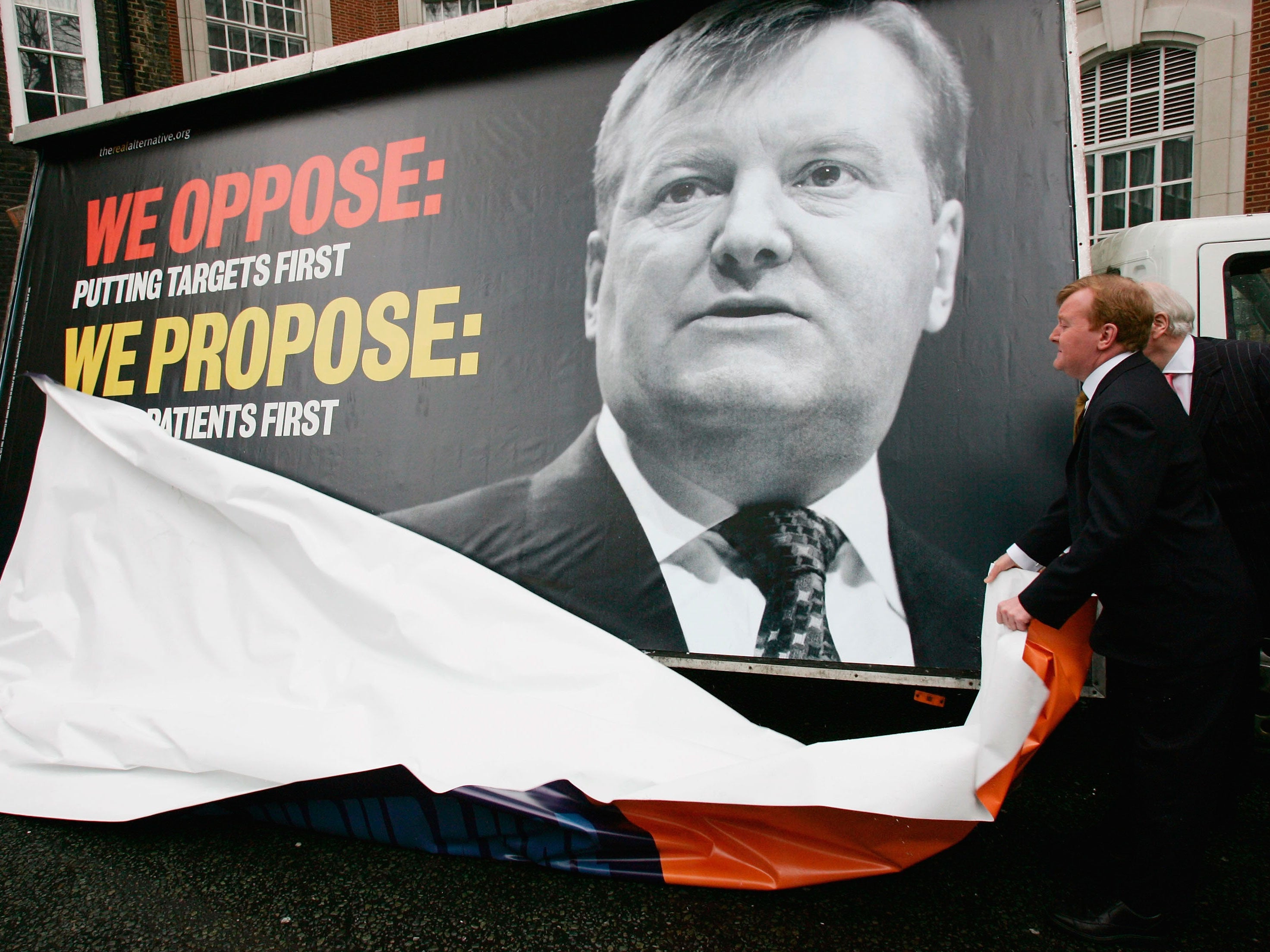Charles Kennedy: My friend – a politician who didn’t seem like a politician
He liked being the underdog, because it gave him the freedom to follow his firmly held beliefs


Your support helps us to tell the story
From reproductive rights to climate change to Big Tech, The Independent is on the ground when the story is developing. Whether it's investigating the financials of Elon Musk's pro-Trump PAC or producing our latest documentary, 'The A Word', which shines a light on the American women fighting for reproductive rights, we know how important it is to parse out the facts from the messaging.
At such a critical moment in US history, we need reporters on the ground. Your donation allows us to keep sending journalists to speak to both sides of the story.
The Independent is trusted by Americans across the entire political spectrum. And unlike many other quality news outlets, we choose not to lock Americans out of our reporting and analysis with paywalls. We believe quality journalism should be available to everyone, paid for by those who can afford it.
Your support makes all the difference.I was sorting through some old papers the other day, and came across a bunch of letters I had received when I was editor of The Independent. Among them was a handful from Charles Kennedy. Handwritten on House of Commons notepaper, they were unfailingly courteous, thoughtful missives, mainly expressing his regard for the paper’s editorial line when it chimed with Lib Dem policy, on, for instance, Europe or the Iraq war. But they all had a personal touch, and he was especially appreciative of the interviews I conducted with him at the Lib Dem conferences.
For a couple of years, Charles and I did a two-man show on the final day of the party conference. It wasn’t exactly Paxman versus Howard, but neither was it Bremner and Bird. In front of a packed hall of the party faithful, we’d discuss Lib Dem policy. I’d ask him about his personal style and we’d take questions from the audience. He was adamant he didn’t want to know the questions beforehand: he eschewed any form of stage management, and clearly needed a little hit of something unexpected to keep him on his toes.
Minutes before we were due on stage, I lost him. I eventually found him in a quiet corner backstage, drawing on a cigarette. He was hardly a reassuring sight: puffing away, he was visibly nervous, perceptibly ill at ease. As soon as we got under the arc lights, however, he was a different person, answering the questions with ease and conviction, exuding confidence and calm. It was then that I began to realise the extent of the dissonance between the private and the public as far as Charles Kennedy was concerned, a thread that was to run through his life right until the end.
In all the encomia delivered in the aftermath of Charles’s death, there has been one phrase that was common to all. He was a talented politician. That’s what they said, friend and foe. Of course, his achievements in politics, holding his seat for 32 years, and leading the third party to their highest parliamentary representation for 80 years, were significant. But I think that, in this case, what people meant by saying he was “a talented politician” was that he was, in fact, “a decent man”.
He had principles, values, consistency, and he could relate to real people in a way most politicians can’t. And not through the sort of hammed-up, bar-room bonhomie that Nigel Farage and Boris Johnson practise. He wouldn’t compromise his Highlander’s gift for articulacy – his air of a principled but informal, soulful but fundamentally flawed man was, as far as we could tell, the real him.
Although politics was all he did in his life, he didn’t, curiously, come across as a career politician. In fact, I once said to him in private that he gives the impression of a man who, if he were to dream of being Prime Minister, would wake up screaming. He protested, of course, but not with any great conviction. He liked being the underdog, because it gave him the freedom to follow his firmly held beliefs, whether it be opposing the Iraq War or standing alone against the Lib Dem-Conservative coalition in 2010.
Politicians always want to be friends with national newspaper editors. It suits the purposes of all. But when it came to Charles Kennedy, I genuinely thought that our connection went beyond pragmatism and politics. And when he signed his letters “Your friend”, I felt he meant it.
Join our commenting forum
Join thought-provoking conversations, follow other Independent readers and see their replies
Comments